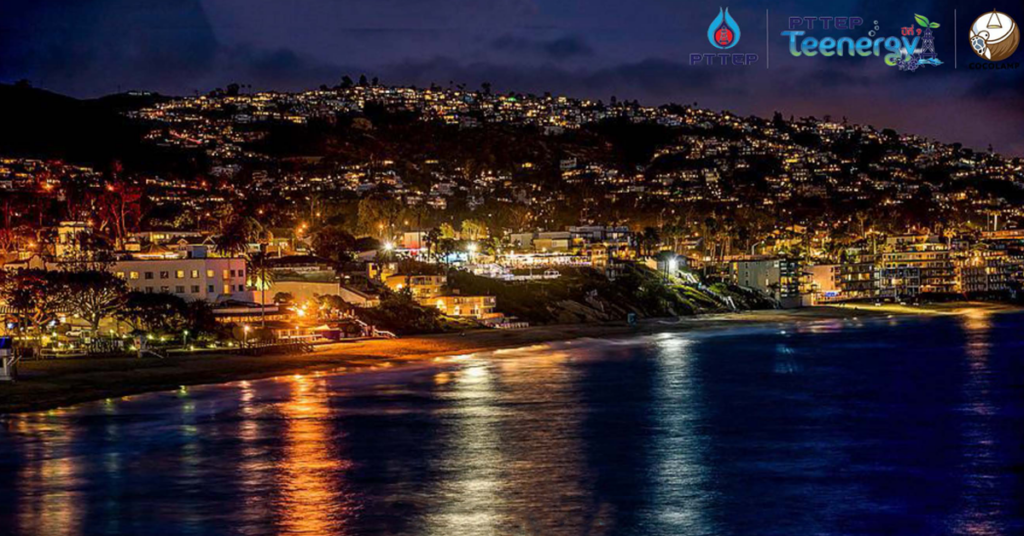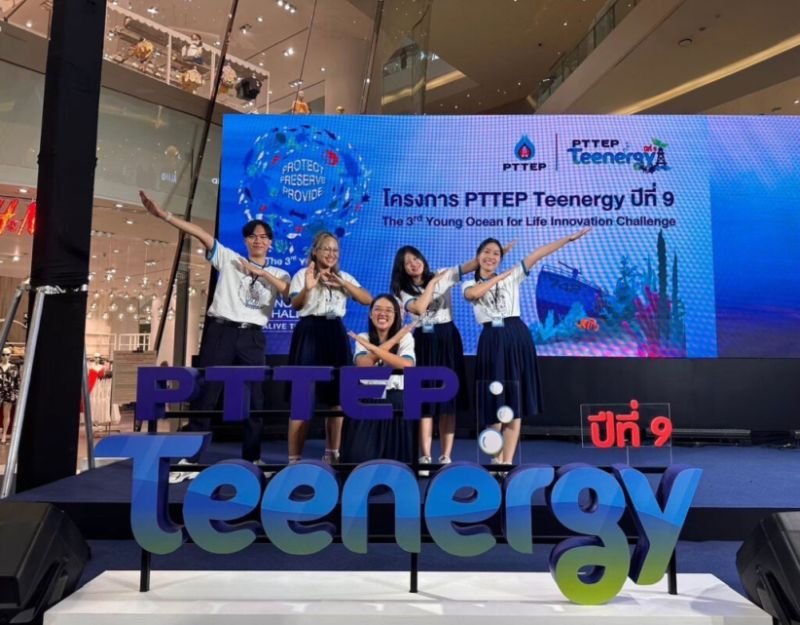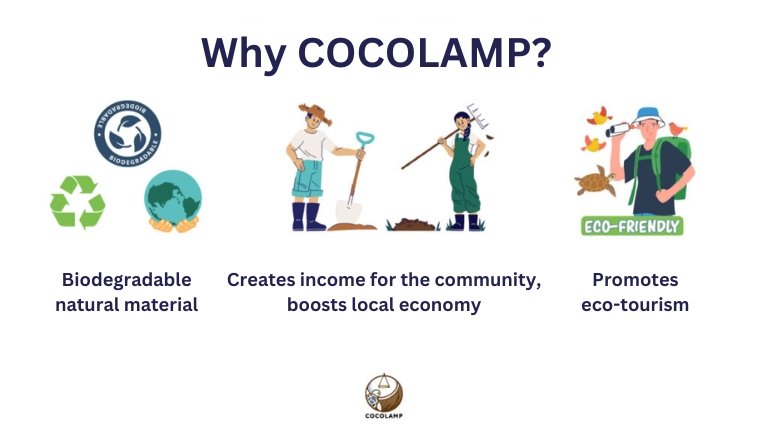COCOLAMP Saves Lost Baby Sea Turtles, An Innovation from Chulalongkorn Students
Students of the Faculty of Science, Chulalongkorn University came up with the idea of “COCOLAMP” — light bulb shades that divert lights on the beach that interfere with the spawning of sea turtles and help sea turtle hatchlings to crawl safely into the sea. This innovation is for the conservation of sea turtles, and the promotion of their coexistence with humans.
Sea turtles in Thailand are at risk of extinction. There are several threats. Among them are lights from hotels, resorts, and restaurants along the beach where sea turtles lay eggs. Most importantly, these lights confuse the baby turtle hatchlings. Instead of going into the sea, they would crawl to the lit areas, and get stranded on the beach, exposed to attack by predators, and eventually die from dehydration.

“COCOLAMP” light bulb shades
This problem is driving the Turtle Rangers team of students from the Faculty of Science, Chulalongkorn University, to develop “COCOLAMP”, a bulb shade that will help divert the lights to suit the sea turtles according to the Turtle friendly principle, so that the baby turtles can crawl into the sea safely.

Turtle Rangers Team
“We studied sample data from Anna Maria Island, Florida, United States, which showed that creating a light-friendly environment for sea turtles can significantly reduce the number of lost hatchlings, so we invented the “COCOLAMP” innovation to help solve the problem while maintaining a human lifestyle. We want people and turtles to live happily together,” said Ms. Monnapat Sringern, Faculty of Science, Chulalongkorn University, one of the members of the Turtle Rangers team, referring to the idea of developing “COCOLAMP.”
COCOLAMP is friendly to sea turtles and nature
Ms. Monnapat shared that COCOLAMP is an innovative light-diverting bulb shade for sea turtles that has been designed with the principles of sea-turtle-friendly lighting in mind based on recommendations from the US National Oceanic and Atmospheric Administration (NOAA) which states that the light must be at low wattage using low-wave bulbs and fitted with covers to prevent the light from shining towards the sea.

In addition to designing sea-turtle-friendly equipment, the Turtle Rangers also designed COCOLAMP to be environmentally friendly and supportive of the community economy.
“COCOLAMP is made from coconut fiber sourced from within the community, bonded by rubber, and coated with silica from rice husk. The rubber coating bonds and strengthens the fiber while keeping it flexible and water-resistant. Silica from rice husk helps with repelling water, dust, and grime. COCOLAMP is durable, easy to install, can be used in any environment, inexpensive, and most importantly, biodegradable,” Ms. Monnapat summarized the highlights of the innovation.
How to install and use COCOLAMP
Ms. Monnapat said that it is not difficult to install and use the COCOLAMP. Just cover the bulbs on the beaches that are in use at night where sea turtles have been reported to lay eggs. The COCOLAMP will help to divert the light from the sea.

“Installing COCOLAMP will help optimize the beach light environment for sea turtles to spawn and hatch and will also allow baby turtle hatchlings to crawl safely into the sea.”
In addition to lamp covers, COCOLAMP also has Line Chatbots to help collect data and evaluate the use of the device after installation and actual use.

“Users can submit data and reports on the installation and performance of COCOLAMP through Line Chatbots, which enables systematic data collection to analyze usage results. Chatbots can also provide information and advice on the installation and maintenance of COCOLAMP,” explains Ms. Monnapat.

COCOLamp via Line Chatbot
Raise Awareness about Sea Turtles, Support the Economy and Community Tourism
COCOLAMP is not just a device that optimizes the beach environment for spawning and incubating sea turtles, Ms. Monapat and the Turtle Rangers also hope that this innovation will spark inspiration in all stakeholders in society, including tourists, entrepreneurs, and locals, to come together to conserve sea turtles and the environment.

“We believe that the installation and use of this innovation will be another force in raising awareness in the conservation of sea turtles that are at risk of extinction and promote eco-tourism related to sea turtles, which can earn up to seven times more than hunting turtles for food and decorations, maintaining a sustainable balance between tourism and the conservation of natural resources,” said Ms. Monnapat with a smile.
Currently, the Turtle Rangers are developing and testing the performance of the “COCOLAMP” in the lab before producing them to be installed in the surveyed areas for evaluation.
“In the future, we have plans to develop COCOLAMP into a start-up business and intend to design other innovations that are environmentally friendly,” concluded Ms. Monnapat.




